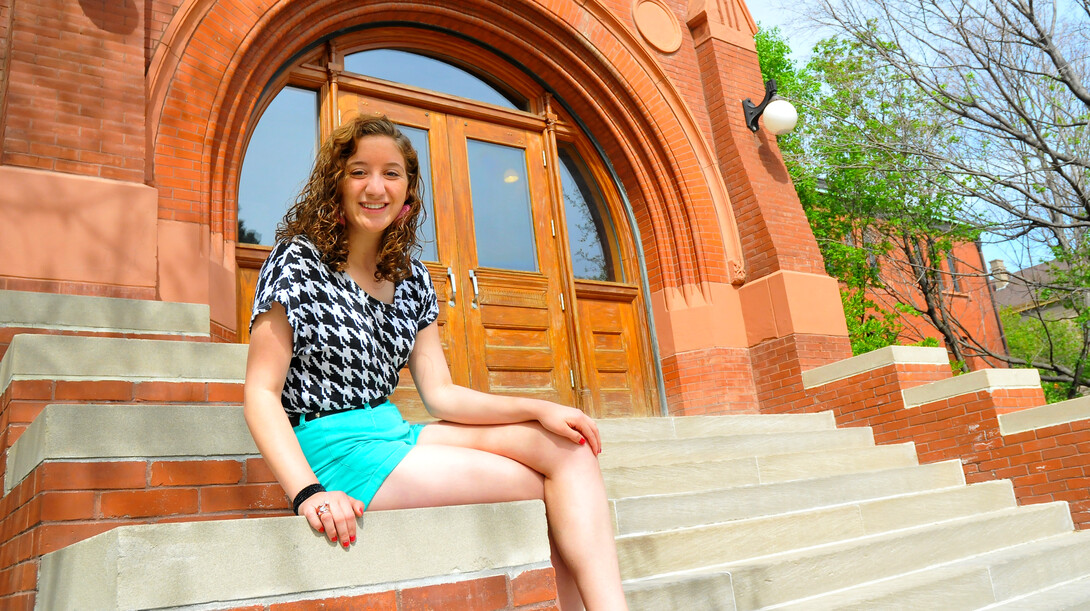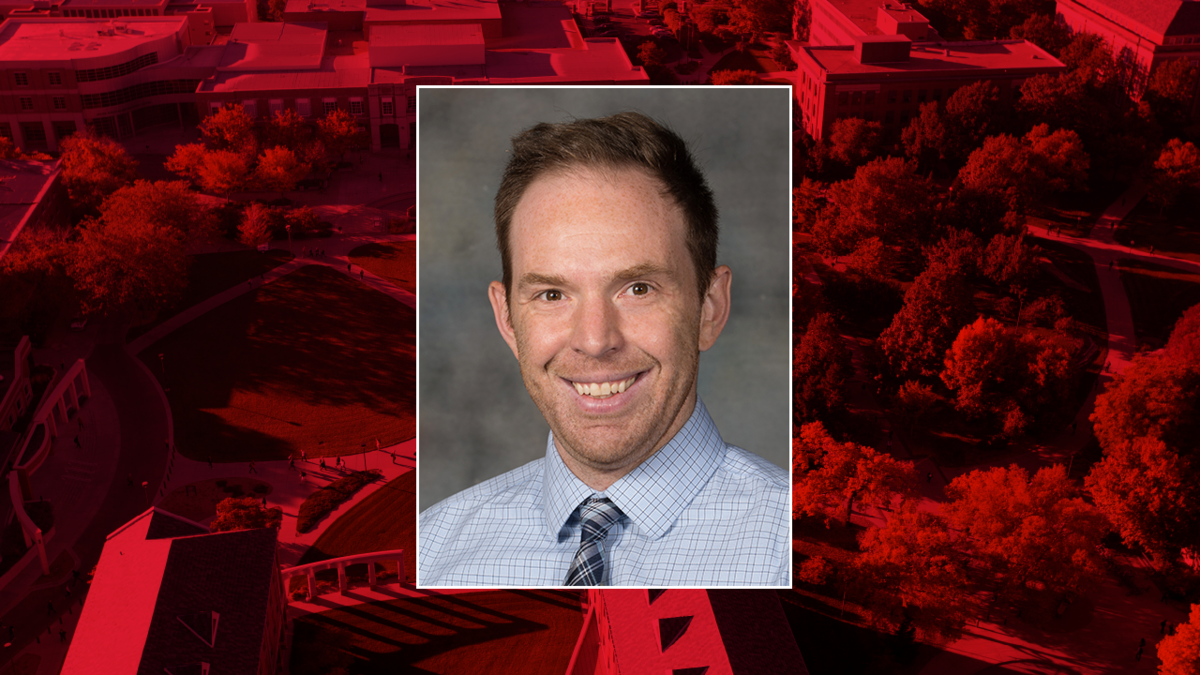
A UNL senior who has applied her math skills to understand how the brain thinks and perceives will pursue a doctorate at Carnegie Mellon University with the help of the National Science Foundation.
Aubrey Thompson earned an NSF Graduate Research Fellowship, which provides international research and professional development opportunities. Thompson will receive her bachelor’s degree in mathematics this week.
Thompson, a Lincoln native, has studied machine learning algorithms, which attempt to extract patterns out of large amounts of data. She expanded her research into the field of mathematical neuroscience through a UCARE undergraduate research under the advisement of Carina Curto, assistant professor of mathematics.
“I’ve worked on various neural coding projects, where typically the question is, given neural firing patterns, how does the brain decipher what stimulus is being presented?” Thompson said. “Or, how does the brain represent the world around it?
“The theoretical or mathematical neuroscience field is mainly concerned with asking how the brain thinks and perceives, and specifically whether we can use mathematics to further understand these phenomena.”
Thompson, who was also enrolled in the Raikes School, said her computer science education was especially valuable because technology is so intertwined with research.
Thompson assisted a project last summer that explored how populations of neurons within the brain behave. Thompson said she will continue the research in graduate school.
Receiving the NSF fellowship was a surprise for Thompson, who said the funding would allow her to be more particular in the type of research she pursues in graduate school.
“It’s an honor to receive the fellowship and if you can bring your own funding to a graduate school, you’re a much better candidate for schools because they don’t have to find the funding for you,” Thompson said. “This will allow me to do the research I want to do because I won’t be relying on my adviser for grant funding.”
More than 14,000 applications were received for the 2014 competition, and 2,000 fellowships were awarded.







